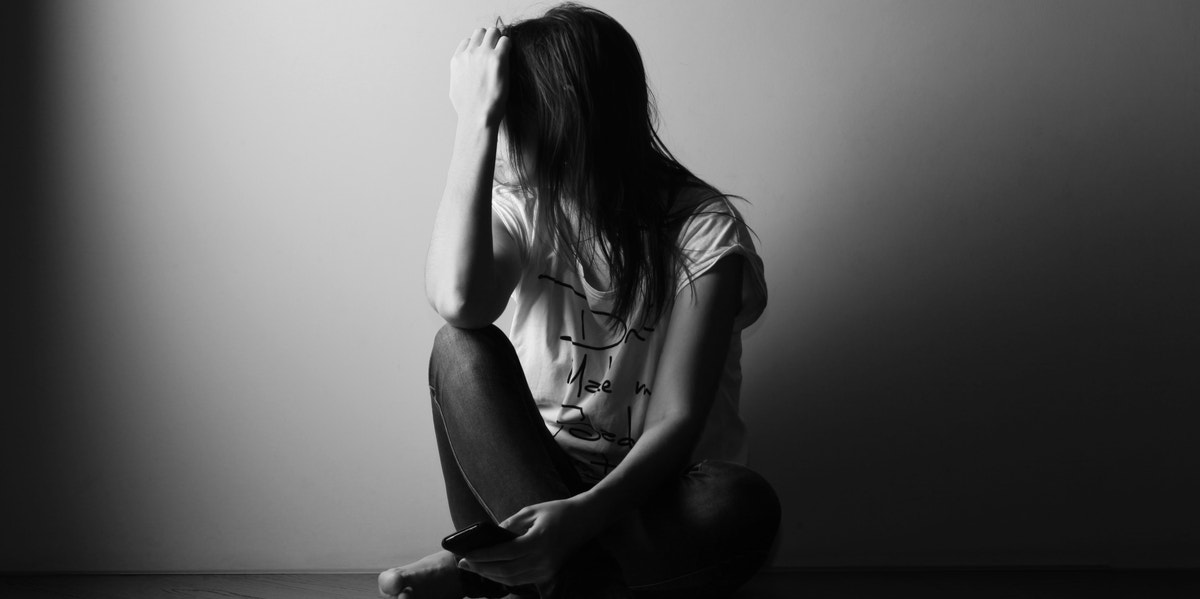Everything You’ve Learned About Suicide Being Immoral Is A Lie
The truth about suicide and depression makes people nervous.
 Stanislaw Mikulski / Shutterstock
Stanislaw Mikulski / Shutterstock Editor's Note: This is a part of YourTango's Opinion section where individual authors can provide varying perspectives for wide-ranging political, social, and personal commentary on issues.
I am a 55-year-old man with a good job and a family I adore — yet every day I live with suicidal thoughts.
Since I started talking and writing about my suicidal thoughts, people around me have expressed their concerns. They want me to stop initiating this conversation because it scares them. It makes them feel uncomfortable.
Every single day the impulse is there, and the way others react to me when they learn this about me is entirely wrong.
What it really means to choose life every day
I want folks to understand I’ve been choosing life since September 2007, when I was truly prepared to die by suicide, and yet made the choice to live. Just because I made a different choice, it doesn't mean my suicidal thoughts and feelings magically went away. That's not how this works.
Real life isn't a movie in which the depressed protagonist has some divine "a-ha" moment, steps back from the cliff's edge, and goes skipping merrily down the street, never to waver from perfect happiness again.
There are no prayers I know of for those of us who regularly think about suicide without acting on those thoughts, only for those who stop breathing, who attempt suicide unsuccessfully, or for the survivors left behind.
I made a choice to keep living. Some days that choice feels easier to honor than others.
I am still here — and you are, too
But I’m still here, and I intend to continue being here — and as long as I’m breathing, I want other people feeling suicidal to know they are not alone.
I don't mean that in the "you are not alone," the patronizing way we too often tell suicidal people to “get over it.”
I simply mean I now dedicate much of my time breathing to working with people who feel just like I do.
I stay here to speak for others — perhaps for you — and to confirm for you that your feelings are valid.
The reason doesn't matter
It doesn't matter if you feel this way because life circumstances robbed you of hope, because you are clinically depressed, or because you are terminally ill and want to die on your own terms before you perceive your dignity stripped away. No one is weak or wrong for feeling suicidal.
Everything society says about suicide being morally wrong is a lie.
It is a well-intentioned lie, of course. One meant to drive fear and shame into our loved ones so that they won't abandon us, and yet one that will never actually help us as we struggle with feelings of despair, or prevent our death if these feelings overwhelm us.
Unfortunately, it is a lie that only deepens our depression and leaves those who love us in the throes of greater anger, guilt, and despair.
The first time I faced suicide and chose to keep breathing, no one was there — neither for me nor against me. No human being should ever feel that alone.
I simply can’t let that happen to someone else, even if I never meet them.
Remember that you are never alone
I feel connected to every person who lives with suicidal thoughts. I understand what it's like to live with and wrestle with these thoughts daily, and I accept each individual's choices without judgment, simply wishing my brother and sister human beings peace.
Am I saying I'm A-OK with people killing themselves? Of course not.
What matters to me right now is that no one feels alone. You know someone out there facing the same choice, still surviving, maybe even because of you. You have my genuine compassion. That you took the time to read this is enough for me.
Hotline for help: There are several options in case you or someone you know needs help to deal with an immediate crisis. Call 911 if you think a family member may harm themselves or others. The National Suicide Prevention Lifeline is also available 24/7 at 1-800-273-TALK (8255).
Bill Protzmann is the founder of Music Care Inc., a for-profit corporation dedicated to teaching practical ways music can be used for self-care. His latest book, More Than Human, explains how and why re-engaging the human spirit can make a practical and positive difference.
